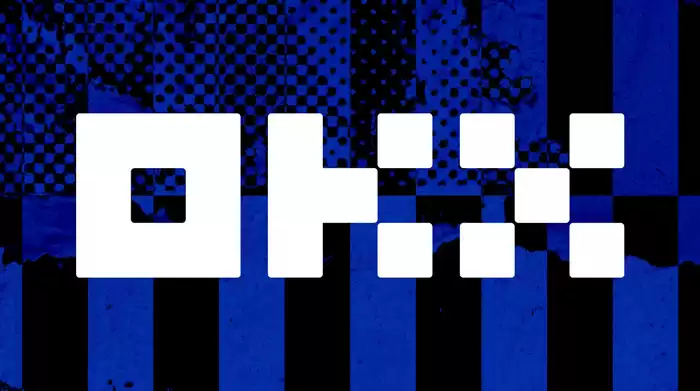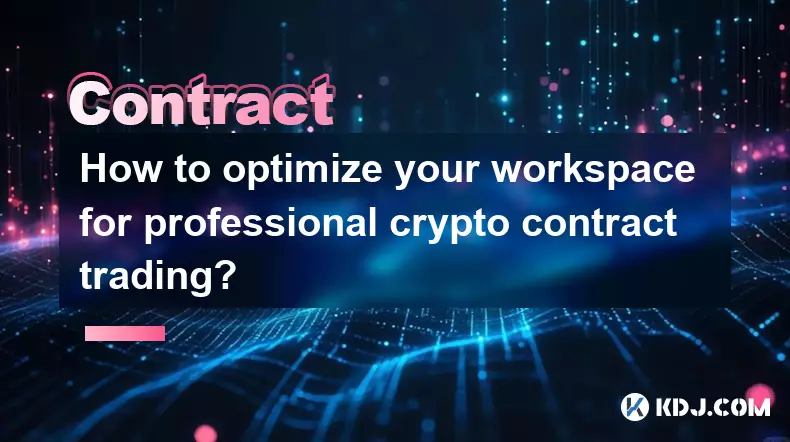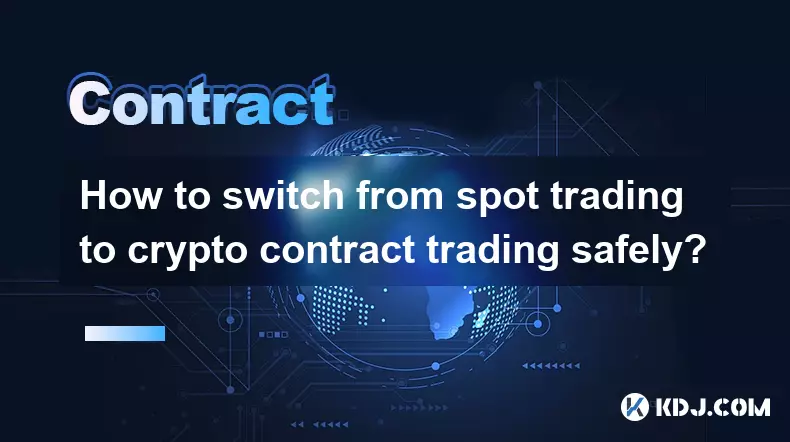-
 bitcoin
bitcoin $87959.907984 USD
1.34% -
 ethereum
ethereum $2920.497338 USD
3.04% -
 tether
tether $0.999775 USD
0.00% -
 xrp
xrp $2.237324 USD
8.12% -
 bnb
bnb $860.243768 USD
0.90% -
 solana
solana $138.089498 USD
5.43% -
 usd-coin
usd-coin $0.999807 USD
0.01% -
 tron
tron $0.272801 USD
-1.53% -
 dogecoin
dogecoin $0.150904 USD
2.96% -
 cardano
cardano $0.421635 USD
1.97% -
 hyperliquid
hyperliquid $32.152445 USD
2.23% -
 bitcoin-cash
bitcoin-cash $533.301069 USD
-1.94% -
 chainlink
chainlink $12.953417 USD
2.68% -
 unus-sed-leo
unus-sed-leo $9.535951 USD
0.73% -
 zcash
zcash $521.483386 USD
-2.87%
How to trade OKX contract
Understanding contracts, opening an account on OKX, funding it with cryptocurrency, and selecting a contract are essential steps before trading contracts on this leading cryptocurrency exchange.
Nov 10, 2024 at 10:24 pm

A Comprehensive Guide to Trading Contracts on OKX
OKX is a leading cryptocurrency exchange that offers a wide range of trading products, including spot trading, futures trading, and options trading. In this guide, we will focus on how to trade contracts on OKX.
1. Understanding ContractsContracts are derivative instruments that allow traders to speculate on the future price of an underlying asset, such as a cryptocurrency or commodity. When you trade a contract, you are essentially entering into an agreement to buy or sell the underlying asset at a predetermined price at a future date.
There are two main types of contracts: futures contracts and perpetual contracts. Futures contracts have a fixed expiry date, while perpetual contracts do not. This means that perpetual contracts can be held indefinitely.
2. Opening an Account on OKXThe first step to trading contracts on OKX is to open an account. You can do this by visiting the OKX website and clicking on the "Sign Up" button. Once you have created an account, you will need to verify your identity by providing a government-issued ID and proof of address.
3. Funding Your AccountOnce your account is verified, you will need to fund it with cryptocurrency. You can do this by depositing cryptocurrency from another wallet or by purchasing cryptocurrency directly from OKX.
4. Selecting a ContractThe next step is to select the contract that you want to trade. OKX offers a wide range of contracts, including contracts on Bitcoin, Ethereum, Litecoin, and other cryptocurrencies.
5. Placing an OrderOnce you have selected a contract, you can place an order. You can choose to buy (long) or sell (short) the contract. You will also need to specify the order type and the quantity of contracts that you want to trade.
6. Monitoring Your TradesOnce you have placed an order, you can monitor its status by clicking on the "Orders" tab in the OKX interface. You can also view the live market data for the contract that you are trading by clicking on the "Markets" tab.
7. Closing Your TradesWhen you are finished trading, you can close your trades by clicking on the "Close" button in the OKX interface. You can choose to close all of your trades at once or just a portion of them.
8. Withdrawing Your ProfitsOnce you have closed your trades, you can withdraw your profits by clicking on the "Withdraw" button in the OKX interface. You can withdraw your profits to another wallet or to your bank account.
Trading FeesOKX charges a trading fee for each contract that is traded. The trading fee varies depending on the contract that you are trading and the order type that you use. You can view the trading fees for each contract by clicking on the "Fees" tab in the OKX interface.
Risks of Trading ContractsTrading contracts can be risky. The price of the underlying asset can fluctuate significantly, and you could lose money on your trades. It is important to understand the risks involved in trading contracts before you get started.
Disclaimer:info@kdj.com
The information provided is not trading advice. kdj.com does not assume any responsibility for any investments made based on the information provided in this article. Cryptocurrencies are highly volatile and it is highly recommended that you invest with caution after thorough research!
If you believe that the content used on this website infringes your copyright, please contact us immediately (info@kdj.com) and we will delete it promptly.
- Crypto Crossroads: Bitcoin Price Reacts to Fed Jitters Amidst Shifting Sands
- 2026-02-02 05:05:02
- Justin Sun, Tron, Manipulation Allegations: New Bitcoin Strategy Meets Lingering Controversy
- 2026-02-02 05:05:02
- Bitcoin Eyes $77K as Michael Saylor Reaffirms Unwavering Conviction Amidst Market Swings
- 2026-02-02 05:00:02
- Altcoin Season on the Horizon? ETH, XRP, SOL, ADA Face Potential 184x Gains Amidst Shifting Crypto Landscape
- 2026-02-02 05:00:02
- Bitcoin ETF News: Latest Updates Drive Investment and Market Dynamics
- 2026-02-02 04:50:02
- Rare Royal Mint Coin Error Fetches Over £100: The 'Fried Egg' £1 Coin Phenomenon
- 2026-02-02 04:45:01
Related knowledge

How to close a crypto contract position manually or automatically?
Feb 01,2026 at 11:19pm
Manual Position Closure Process1. Log into the trading platform where the contract is active and navigate to the 'Positions' or 'Open Orders' tab. 2. ...

How to understand the impact of Bitcoin ETFs on crypto contracts?
Feb 01,2026 at 04:19pm
Bitcoin ETFs and Market Liquidity1. Bitcoin ETFs introduce institutional capital directly into the spot market, increasing order book depth and reduci...

How to trade DeFi contracts during the current liquidity surge?
Feb 01,2026 at 07:00am
Understanding Liquidity Dynamics in DeFi Protocols1. Liquidity surges in DeFi are often triggered by coordinated capital inflows from yield farming in...

How to trade micro-cap crypto contracts with high growth potential?
Feb 01,2026 at 02:20pm
Understanding Micro-Cap Crypto Contracts1. Micro-cap crypto contracts refer to derivative instruments tied to tokens with market capitalizations under...

How to optimize your workspace for professional crypto contract trading?
Feb 01,2026 at 08:20pm
Hardware Infrastructure Requirements1. High-frequency crypto contract trading demands ultra-low latency execution. A dedicated workstation with a mini...

How to switch from spot trading to crypto contract trading safely?
Feb 01,2026 at 03:59pm
Understanding the Core Differences Between Spot and Contract Trading1. Spot trading involves the immediate exchange of cryptocurrencies for fiat or ot...

How to close a crypto contract position manually or automatically?
Feb 01,2026 at 11:19pm
Manual Position Closure Process1. Log into the trading platform where the contract is active and navigate to the 'Positions' or 'Open Orders' tab. 2. ...

How to understand the impact of Bitcoin ETFs on crypto contracts?
Feb 01,2026 at 04:19pm
Bitcoin ETFs and Market Liquidity1. Bitcoin ETFs introduce institutional capital directly into the spot market, increasing order book depth and reduci...

How to trade DeFi contracts during the current liquidity surge?
Feb 01,2026 at 07:00am
Understanding Liquidity Dynamics in DeFi Protocols1. Liquidity surges in DeFi are often triggered by coordinated capital inflows from yield farming in...

How to trade micro-cap crypto contracts with high growth potential?
Feb 01,2026 at 02:20pm
Understanding Micro-Cap Crypto Contracts1. Micro-cap crypto contracts refer to derivative instruments tied to tokens with market capitalizations under...

How to optimize your workspace for professional crypto contract trading?
Feb 01,2026 at 08:20pm
Hardware Infrastructure Requirements1. High-frequency crypto contract trading demands ultra-low latency execution. A dedicated workstation with a mini...

How to switch from spot trading to crypto contract trading safely?
Feb 01,2026 at 03:59pm
Understanding the Core Differences Between Spot and Contract Trading1. Spot trading involves the immediate exchange of cryptocurrencies for fiat or ot...
See all articles










































































